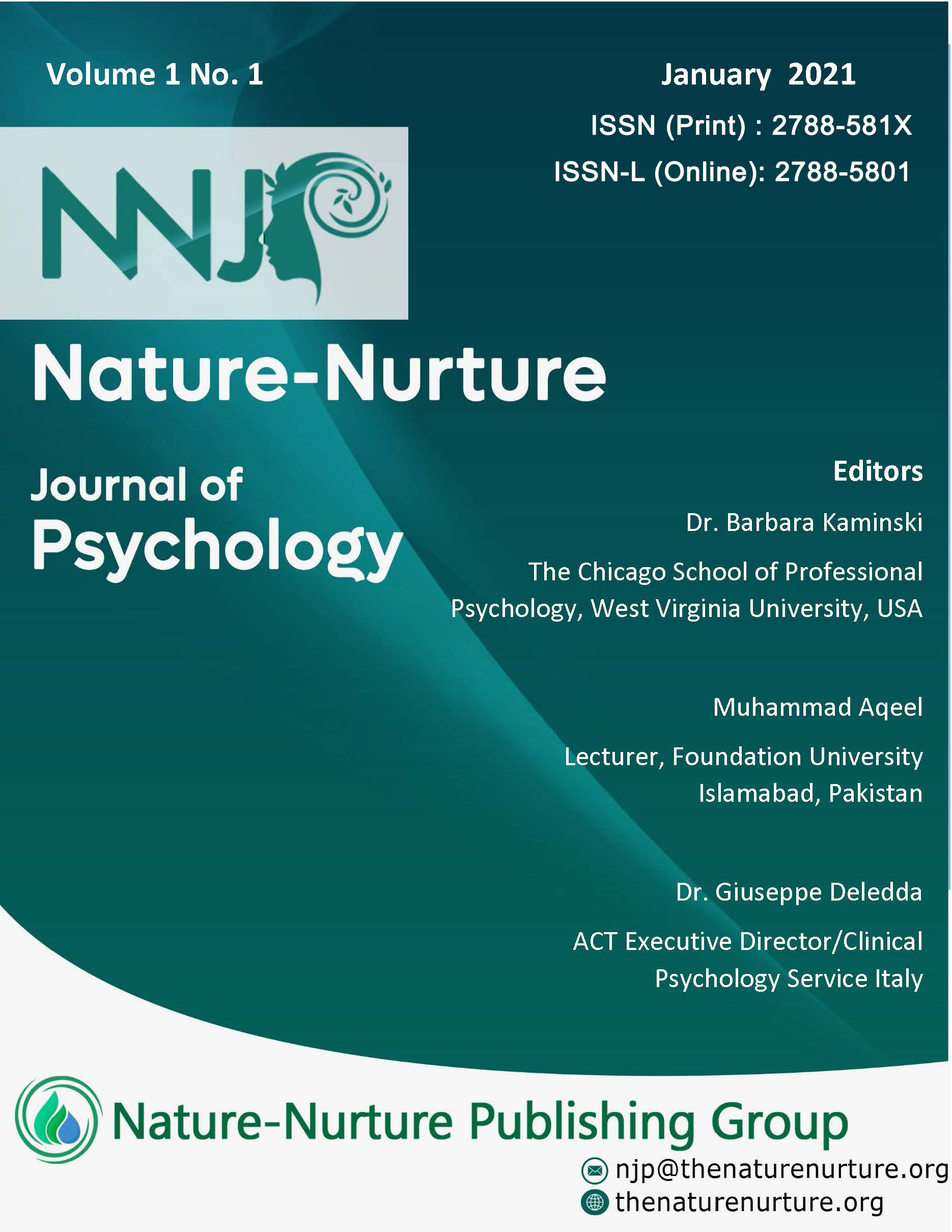Abstract
Background: Pain is considered one of the most important sign of osteoarthritis. It has directly been linked to mental problems such as anxiety, depression, and mood swings globally. This present study examined the relationship of pain severity and coping strategies with vulnerable perception of osteoarthritis, pain anxiety, depression, positive and negative affect in osteoarthritis patients. Further, this study investigated moderating and mediating role of pain severity and coping strategies among vulnerable perception of osteoarthritis, pain anxiety, depression, positive and negative affect.
Methods: Purposive sampling technique was used bases on cross-sectional study design. 250 diagnosed knee osteoarthritis patients (Female, n= 105; Male, n = 145) with age ranged between 30 to 60 years (M= 55.09, SD = 10.60) were included from different hospitals of Rawalpindi and Islamabad, Pakistan. Six psychological instruments, Back depression inventory (Beck, 1961), Pain perception scale (Wong & Baker, 2009), Knee injury and osteoarthritis outcome score (Roos, 1995) Pain anxiety symptom scale (Cracken, 1992), Positive and negative affect schedule (Hussein & Vostanis, 2008), and coping strategies scale (Carver,1997) were used to assess coping defense mechanism, pain severity, pain anxiety, depression and positive and negative affect in patients with osteoarthritis.
Results: The results of correlation analysis revealed pain severity was statistically negatively associated with depression but it was statistically positively related to religious coping strategy and positive affect. Moderation and mediational analyses demonstrated perception of osteoarthritis was associated to stimulate pain severity, depression, positive and negative affect that was triggered and reduced using different coping defense mechanism including religious, problem focused, and positive coping strategies in osteoarthritis patients. In additionally, these results recommended that pain severity was partial mediator between perception of osteoarthritis and depression.
Conclusions: These results suggested that pain severity and pain anxiety were more detrimental to psychological problems in patients with osteoarthritis.

This work is licensed under a Creative Commons Attribution 4.0 International License.





